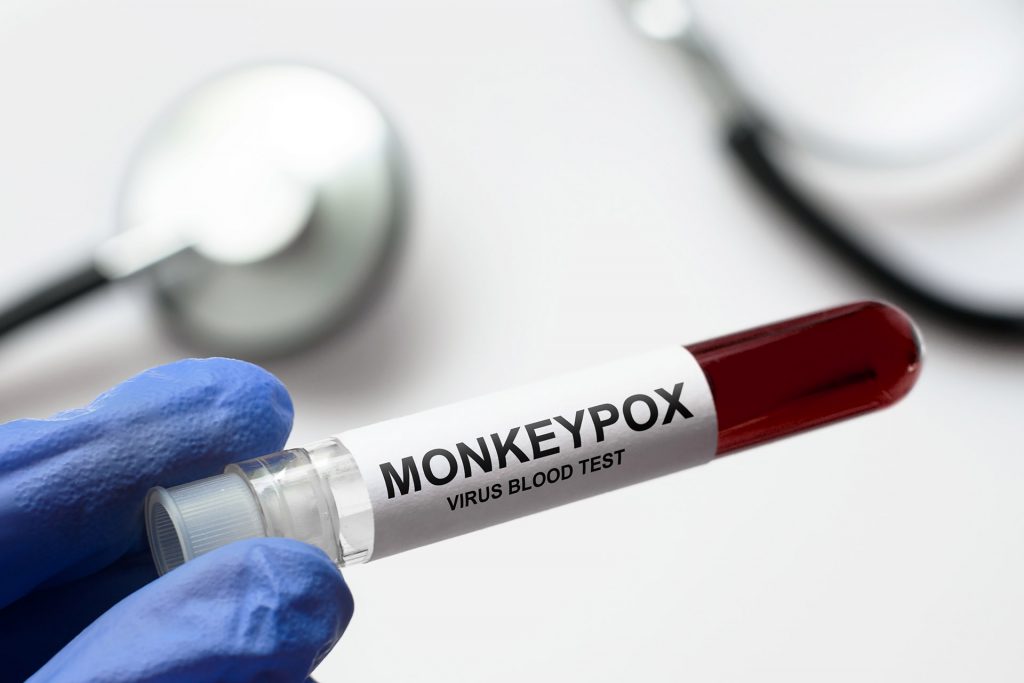Find The Location Nearest Covid-19 Testing
We think you’re located in zip code 37405. Not Right?
Chattanooga-Northshore Monkeypox Testing Near Me
Looking for MPOX (Monkeypox) testing near Hamilton County? At AFC Urgent Care, we provide fast and reliable testing and treatment for Monkeypox. Visit us 7 days a week with no appointment necessary.

Table of Contents ▼
What is Monkeypox?
Monkeypox is a rare viral disease that affects both humans and animals. It is caused by the monkeypox virus, which belongs to the same family of viruses as smallpox and chickenpox. The first case of Monkeypox in humans was found in 1970 in the Democratic Republic of Congo and has since been reported in a number of countries in Central and West Africa. The disease can be serious, but it is generally not as severe as smallpox and can be treated with the appropriate care.
Monkeypox Symptoms
If you become infected with monkeypox, you may experience flu-like symptoms anywhere from 5 days to 3 weeks after exposure. These include:
- fever
- headache
- muscle aches
- exhaustion
- swollen lymph nodes
- rash
The rash usually appears 1 to 4 days after the flu-like symptoms begin and can spread to other parts of the body. Symptoms can last between 2 to 4 weeks, including the rash that will scab over and fall off towards the conclusion of the illness.
The good news is that the smallpox vaccine is at least 85% effective in preventing monkeypox, according to the CDC. This means that many people who received the vaccine during the last major outbreak from 1949-1980 are less likely to experience severe symptoms if they contract the virus.
How does monkeypox spread?
Monkeypox is typically spread through direct contact with the following:
- the bodily fluids or lesions of an infected person (saliva, mucus, blood or nasal discharge)
- contaminated objects, such as clothing, bedding or other materials
- sexual contact with an infected person
Monkeypox is likely to spread from person to person in areas with a high prevalence of the virus and in situations where people are in close, consistent contact with infected individuals, such as in households or health care settings. It is important to practice good hygiene and avoid close contact with infected individuals or animals in order to reduce the risk of transmission of monkeypox.
Monkeypox Testing and Treatment
At AFC Urgent Care, our providers can test for monkeypox and provide treatment for the symptoms. While there is no precise treatment for the virus, our team can prescribe antiviral medication and medication to reduce the severity of your symptoms. In some cases, the same vaccine and treatments for smallpox may be used to combat the monkeypox virus.

 How Can We Help?
How Can We Help?
- PATIENT SERVICES
- COVID-19 SERVICES
- TELECARE
- EMPLOYER RESOURCES
- PATIENT RESOURCES
- ABOUT US
AFC Urgent Care FAQs
-
When should I choose urgent care?
If you’re dealing with a pressing, non-life-threatening medical issue and don’t want to see a doctor, urgent care could be for you. AFC walk-in clinics are able to see patients dealing with allergic reactions, broken bones, colds and flus, and much more.
-
Do I need insurance to visit AFC?
At AFC we offer very competitive rates for self-pay urgent care and walk-in clinic services. We understand that not everyone may have an insurance plan and we make sure that our out-of-pocket patients are given the same high-quality medical treatment that we give to all our patients.
-
How long will my visit take?
The main advantage of choosing AFC is our short wait times – often under 15 minutes. The total length of your visit will depend on what you’re being seen for, but many patients can be in and out of our clinics in around 30 minutes.
Don't wait to get the medical attention you need.
CALL US TODAY | (423) 259-5997